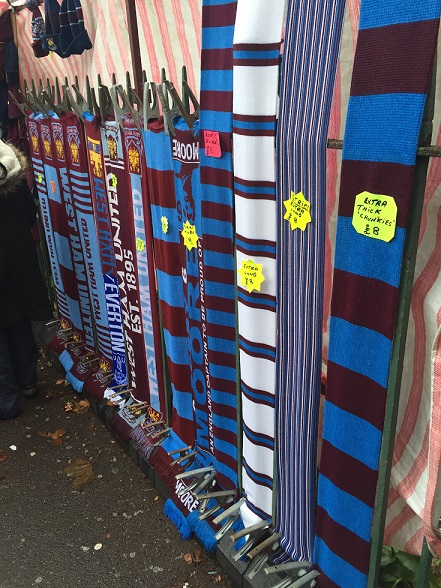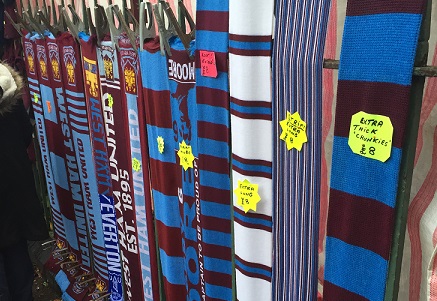Drew Goodsell previews his ongoing investigation into official and unofficial marketing of sports gear.

Sports merchandising is a multi-million-pound industry, with sports teams and well known brands always chopping and changing their shirts in order to obtain more revenue.
During the coming weeks, I will be looking at the sports merchandising industry in East London, focusing on West Ham United, and comparing the official merchandise with its street vendor counterparts.
West Ham United have changed sportswear manufacturers three times over the past five years – with as many changes in their shirt sponsors.
The latest partnerships are with Umbro and Betway, an ‘ambitious, forward-thinking company’ according to vice-chair Karren Brady.
Current sponsorship deals are reported to be worth £4m from Umbro and £6.5m from Betway each year, so does the club really need to charge fans upwards of £45 for a replica shirt?
Given such inflated prices, it’s not surprising that outside Premier League grounds market traders set up their stalls to sell pirated versions of official merchandise.
At a fraction of the price, of course their wares attract attention. But the question remains: are consumers getting value for money from this cut price gear?
Just how different are the pirate versions sold on the stalls compared to the official version from the club megastore? And is the price hike at all justified by the higher quality of the corporate product?
No matter where the products are being sold, they rely on consumers’ continued interest. But who wants what and why? Is it all down to price, or does quality matter more?
These are the questions I will seek answers to in a series on East London’s ducking, diving and sports merchandising.

